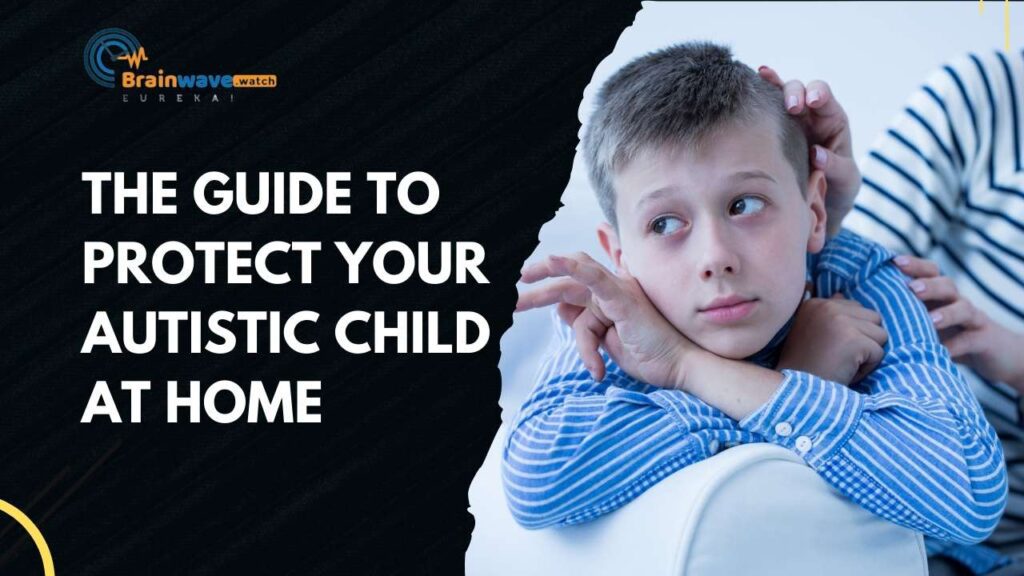If you suspect that your boyfriend may have autism, it can be challenging to bring up the topic without hurting his feelings or causing him to become defensive. However, it is essential to approach the subject with sensitivity and understanding. Here are some tips to help you navigate this difficult conversation.
Choosing the Right Time and Place
It is crucial to choose the right time and place to have this conversation. You want to make sure that your boyfriend is relaxed and not distracted by other things. Consider having the conversation in a private setting where you can both feel comfortable and safe. It is also important to choose a time when your boyfriend is not already feeling stressed or overwhelmed.
Communicating Your Observations
When you bring up the topic of autism with your boyfriend, it is important to communicate your observations in a clear and non-judgmental way. Start by sharing specific behaviors that you have noticed, such as difficulty with social interaction, verbal and nonverbal communication, eye contact, repetitive behaviors, and difficulty with change. Use “I” statements to express your concerns, such as “I have noticed that you seem to have trouble making eye contact with me,” rather than “You never make eye contact with me.”
Being Supportive and Non-Confrontational
It is essential to approach the conversation with a supportive and non-confrontational attitude. Remember that your boyfriend may feel defensive or embarrassed about the topic, so it is important to be patient and understanding. Let him know that you care about him and that you want to help him get the support and resources he needs. Offer to go with him to a doctor or therapist appointment and be willing to listen to his concerns and feelings.
Autism Spectrum Disorder
Autism Spectrum Disorder (ASD) is a neurodevelopmental condition that affects how a person perceives and interacts with the world around them. It is a spectrum disorder, meaning that the symptoms and severity of autism can vary from person to person.
Core Symptoms of Autism
The core symptoms of autism include difficulties in social communication and interaction, and restricted, repetitive patterns of behavior, interests, or activities. People with autism may have difficulty with:
- Social communication: This includes difficulty with verbal and nonverbal communication, such as making eye contact, using gestures, and understanding social cues. People with autism may also have difficulty with conversation skills, such as taking turns and staying on topic.
- Social interaction: This includes difficulty with social relationships, such as making friends, sharing interests, and playing with others. People with autism may also have difficulty with social imagination, such as understanding other people’s thoughts and feelings.
- Restricted, repetitive patterns of behavior, interests, or activities: This includes repetitive movements, such as hand flapping or rocking, and rigid routines or rituals. People with autism may also have an intense interest in certain topics and may have difficulty with changes in routine or environment.
Differences in Autism Presentation
It is important to note that autism can present differently in different people. Some people with autism may have exceptional abilities in certain areas, such as music, art, or math. Others may have intellectual disabilities or other co-occurring conditions, such as anxiety or ADHD.
If you suspect that your boyfriend may have autism, it is important to seek out a professional evaluation from a qualified healthcare provider. They can help determine if your boyfriend meets the diagnostic criteria for autism and provide recommendations for support and treatment.
Recognizing Signs of Autism in Adults
Autism Spectrum Disorder (ASD) is a developmental disorder that affects social interaction, communication, and behavior. It can be challenging to recognize the signs of autism in adults, as they may have developed coping mechanisms that mask their symptoms. However, some signs may indicate that an adult has ASD.
Social Interaction Challenges
One of the most apparent signs of autism in adults is difficulty with social interaction. Adults with ASD may struggle with making and maintaining eye contact, interpreting social cues, and engaging in small talk. They may also have trouble understanding sarcasm, irony, and humor.
Adults with autism may prefer to be alone or have difficulty making friends. They may not understand social norms and may seem rude or blunt without meaning to. They may also have difficulty expressing their emotions and may seem uninterested in others.
Communication Nuances
Communication is another area where adults with autism may struggle. They may have difficulty with verbal and nonverbal communication, such as tone of voice, facial expressions, and body language. They may also have difficulty initiating and maintaining conversations or understanding abstract language.
Some adults with autism may have a limited vocabulary or difficulty with grammar. They may also have difficulty understanding idioms or metaphors. Others may have a unique way of speaking, such as speaking in a monotone voice or repeating certain phrases.
Repetitive Behaviors and Routines
Repetitive behaviors and routines are another hallmark of autism. Adults with autism may have specific routines that they follow every day, such as a specific order in which they get dressed or eat their meals. They may also have a particular interest in a specific topic or activity and may spend hours researching or engaging in that activity.
Adults with autism may also engage in repetitive behaviors, such as hand-flapping or rocking back and forth. They may also have sensory sensitivities, such as being bothered by loud noises or certain textures.
Recognizing the signs of autism in adults can be challenging, but it is essential to seek a diagnosis if you suspect that your boyfriend or loved one has ASD. With the right support and resources, adults with autism can lead fulfilling lives.
Seeking Professional Guidance
If you suspect that your boyfriend has autism, seeking professional guidance can be immensely beneficial for both partners in the relationship. A professional diagnosis can provide valuable insights, strategies, and support tailored to the unique needs of individuals on the spectrum and their partners.
Benefits of a Professional Diagnosis
A professional diagnosis can help both partners in the relationship to better understand autism and its effects. It can also help them develop coping strategies and support systems to manage the challenges that may arise. Furthermore, a professional diagnosis can help to identify any co-occurring conditions, such as anxiety or depression, which may require additional treatment.
Finding the Right Specialist
Finding the right specialist is crucial when seeking a professional diagnosis. Look for a specialist who has experience working with adults with autism and who is knowledgeable about the latest research and treatment options. Consider asking for recommendations from your primary care physician, friends, or family members who have experience with autism.
It’s also important to consider the cost and insurance coverage when seeking a professional diagnosis. Some insurance plans may cover the cost of an evaluation, while others may not. Check with your insurance provider to determine what is covered and what is not.
In conclusion, seeking professional guidance can be a valuable step for both partners in a relationship where one partner may have autism. A professional diagnosis can provide valuable insights, strategies, and support tailored to the unique needs of individuals on the spectrum and their partners.
Supporting a Partner with Autism
When someone has a partner with autism, it can be challenging to know how to support them. Here are some tips on how to support a partner with autism:
Educating Yourself About Autism
One of the most important things you can do to support your partner with autism is to educate yourself about autism. This can help you understand your partner’s behavior and communication style better. It can also help you recognize when your partner is experiencing sensory overload or other challenges associated with autism.
There are many resources available online and in person that can help you learn more about autism. You can start by reading books, attending workshops, or joining support groups. It’s also important to talk to your partner about their experiences with autism and what they need from you.
Building a Supportive Relationship
Building a supportive relationship with your partner is key to helping them thrive. This means being patient, understanding, and accepting of your partner’s differences. It also means being willing to adapt your communication style to meet your partner’s needs.
Here are some tips for building a supportive relationship with your partner with autism:
- Communicate clearly and directly. Avoid using sarcasm, figurative language, or other forms of indirect communication that may be confusing or overwhelming for your partner.
- Be patient and understanding. Your partner may need more time to process information or respond to your questions. Avoid rushing or pressuring them to respond quickly.
- Respect your partner’s boundaries. Many people with autism have sensory sensitivities or other challenges that may make certain activities or situations uncomfortable for them. Be willing to adapt your plans to accommodate your partner’s needs.
- Celebrate your partner’s strengths. Many people with autism have unique talents and abilities that can be celebrated and appreciated. Encourage your partner to pursue their interests and passions.
By educating yourself about autism and building a supportive relationship with your partner, you can help them thrive and live a fulfilling life.







